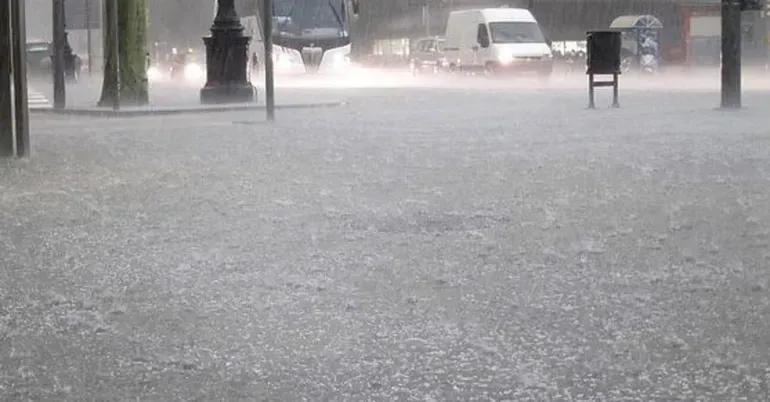The impact of cyclogenesis in Buenos Aires and the country
In recent hours, cyclogenesis has taken center stage in Argentina, generating weather alerts in various provinces. This phenomenon, characterized by the formation of a low-pressure system, translates into heavy rains, strong winds, and severe storms. The central question that arises is: how does this phenomenon affect the daily lives of citizens and the country's infrastructure?
🌧️ Current Situation
Cyclogenesis has formed in the Metropolitan Area of Buenos Aires (AMBA), where abundant precipitation and wind gusts exceeding 60 km/h are expected. According to recent weather reports, this situation could persist, affecting not only the capital but also provinces like Santa Fe and Córdoba. This phenomenon, which began developing on Sunday, has led various agencies to issue alerts for severe storms, generating concern among the population. The combination of intense rains and strong winds can result in flooding and damage to public infrastructure, highlighting the vulnerability of cities to extreme weather phenomena.
These types of events are not isolated. Climate change has increased the frequency and intensity of weather phenomena worldwide, and Argentina is no exception. The cyclogenesis currently being experienced is a reminder of the need for a more robust approach to risk management and urban planning, especially in a context where water and climate are increasingly uncertain.
🌍 International Comparison
Globally, countries like the United States and France have implemented early warning systems and response protocols for severe weather phenomena. In the United States, the National Weather Service (NWS) uses advanced technology to predict and communicate these events in advance, allowing communities to take preventive measures and minimize damage. For example, Hurricane Katrina in 2005 underscored the importance of a rapid and coordinated response; since then, significant investments have been made in infrastructure and technology.
On the other hand, France has developed a crisis management system that includes drills and training for the population, as well as a robust communication system that keeps citizens informed during critical situations. The experiences of these countries suggest that prevention and preparedness are key to mitigating the impacts of phenomena such as cyclogenesis.
⚠️ Social and Political Implications
The implications of cyclogenesis are multiple and affect both social and political spheres. From a social perspective, the lack of adequate infrastructure to face extreme weather events can result in human losses and forced displacements. The most vulnerable communities, often residing in flood-prone areas, are the hardest hit, exacerbating existing inequalities.
In the political arena, the government's response to such crises can influence public perception and trust in institutions. Effective management can strengthen government legitimacy, while inadequate responses can lead to erosion of trust and increased social tension. The current situation in Argentina tests the government's ability to manage crises and its commitment to the safety and well-being of its citizens.
🌪️ Mitigation and Adaptation Strategies
Cyclogenesis and other extreme weather phenomena require a proactive approach to mitigation and adaptation. This involves investing in resilient infrastructure, such as efficient drainage systems and improving emergency services' response capacity. Additionally, it is crucial to promote education and awareness about climate change and its effects on the population. Training programs for communities on how to act in meteorological emergencies can be highly beneficial.
Furthermore, the use of information and communication technologies (ICT) can facilitate the dissemination of information and alerts to the population, potentially saving lives. Implementing an early warning system, similar to those in other countries, should be a priority on the political and social agenda.
The cyclogenesis currently affecting Argentina is a reminder that climate change is not a distant phenomenon; it is a reality that directly impacts people's lives. The capability to respond to extreme weather events determines not only the resilience of a society but also its future. Proper planning, infrastructure investment, and education are fundamental to facing these challenges.
In conclusion, Argentina faces a critical moment where managing phenomena such as cyclogenesis can define the political and social trajectory of the country. History has shown that an effective response can transform crises into opportunities for improvement, but achieving this requires a joint commitment between the government and the citizenry. Without a comprehensive approach that considers both prevention and response, the cost of these phenomena will continue to rise, affecting future generations.

Comments